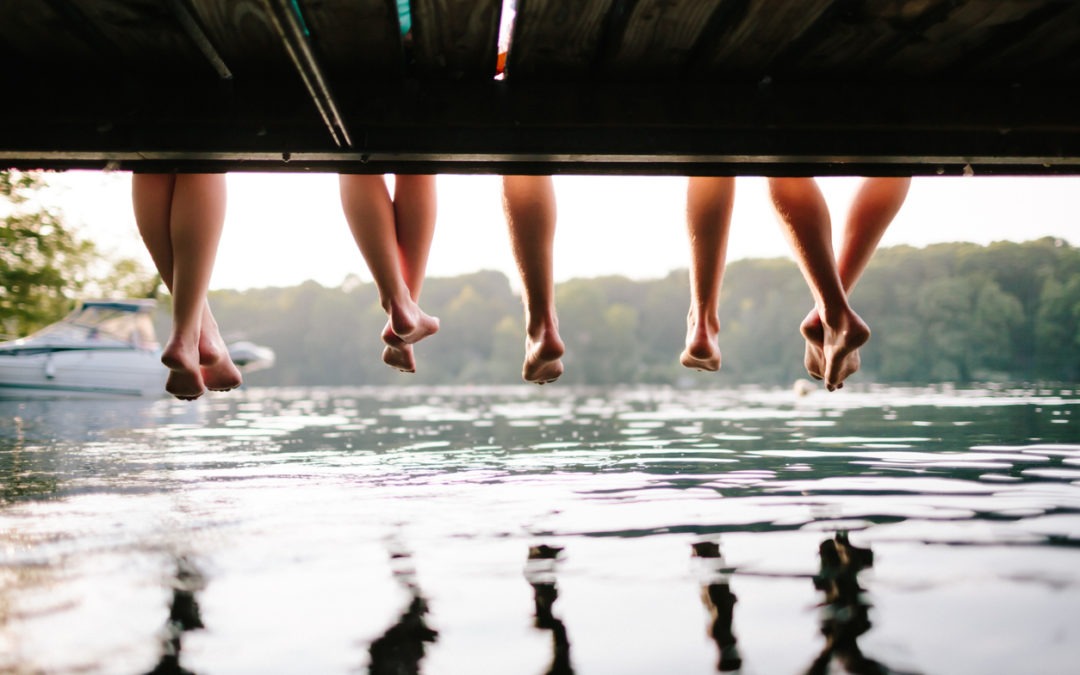If you’re like most people in the Long Island area, when the warmer weather comes around you like to participate in the many fun outdoor activities our area has to offer. But if you struggle with varicose veins, summer can be rough both emotionally and physically due to exacerbated symptoms and increased self consciousness. Here’s a look as to why the warmer weather can make your varicose vein symptoms worse.
How the Summer Heat Affects Your Veins
Although veins and arteries are both part of the cardiovascular system, they have very different functions. For the most part, arteries transport oxygen rich blood away from the heart and veins return oxygen depleted blood back to the heart. One-way valves in the veins act to direct blood in the right direction, towards the heart, and prevent it from flowing backwards. Venous insufficiency occurs when the valves in veins begin to leak and allow blood to flow backwards (reflux) and pool. This increases the pressure inside the veins and can make your legs ache, throb, feel heavy and swell.
Increased activity especially in warmer temperatures may cause more pain or swelling in your legs. When your body naturally heats up either from increased physical activity or increased temperature your veins dilate. Because individuals with varicose veins already have trouble with blood flow regulation, this frequently worsens the swelling. Extra swelling may cause your legs to experience:
- Heaviness
- More pain
- Fatigue
Tips to Reduce Varicose Vein Leg Pain
There are a few ways of relieving painful leg veins.
1. Elevate Your Legs
For relief of discomfort and pain linked to varicose veins, elevate your legs above your heart
- Stretching them up a wall
- Placing your feet on your table
- Lying down in your bed, resting your legs on a few pillows
Doing this will make it easier for your lower body’s blood flow to circulate to your heart, allowing your venous valves to function more efficiently. Elevating your legs will help ease the pain and reduce the swelling.
2. Use Cold Water
If you’re experiencing pain in your legs, shower them with cool water. This will help shrink your blood vessels, alleviating the feeling of heaviness and swelling as well as leg cramps and overall discomfort. Avoid soaking in hot tubs and hot baths since the heat can impact your veins negatively and the throbbing pain can worsen when you’re sitting in hot water.
3. Stretch Your Legs and Exercise
It can help to perform short exercise several times daily where you stretch your calf muscles. Flex your feet often, particularly when you’re on a long trip when you have limited legroom. If you stand or sit in your job, be sure to bend your knees regularly and change your position a minimum of 30 minutes. Physical movement and proper hydration will support healthy blood circulation, therefore drink enough water and continue moving around as often as possible.
Tips to Prevent Varicose Vein Pain
Like with other types of chronic conditions, prevention is important. You can wear special compression stockings to prevent symptoms like heavy legs and swelling which will allow you to avoid uncomfortable and painful cramps at night or towards the end of the day. Wearing compression hosiery in the morning prior to walking around is essential for experiencing the benefits. As blood begins to pool around your ankles, even the compression stockings will be ineffective for helping painful, heavy legs.
Avoid wearing tight clothes and high heels too since they can worsen your varicose veins. They add too much pressure on various body areas, constricting blood flow. Instead, wear comfortable clothing and shoes, particularly if you plan on being on your feet all day long.
Contact Schulman Vein Center
Meet our vein physicians in New York. Dr. Schulman established the Schulman Vein Center, to provide patients with personalized care and the most effective and advanced treatment they deserve. Our office specializes in diagnosing and treating venous reflux disease and its linked conditions like:
- Ugly spider and varicose veins
- Leg fatigue
- Leg cramping and aching
- Leg swelling
- Skin changes and ulcers (in severe cases)
We provide a thorough range of modern treatments and diagnostic imaging. View our varicose vein treatment options here and contact our office to set up your appointment.

